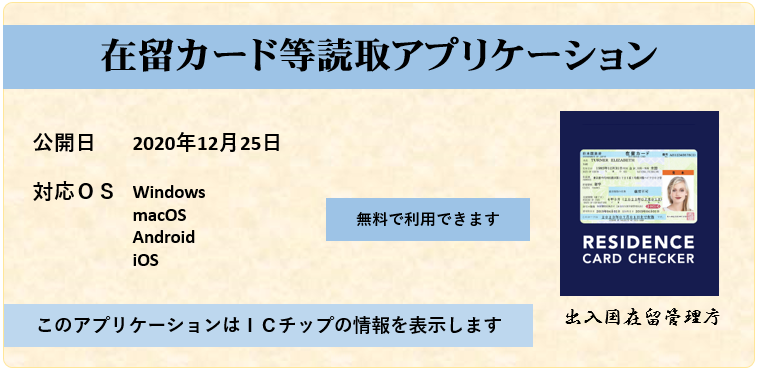mytest
Books, eBooks, and more from Debito Arudou, Ph.D. (click on icon):








UPDATES ON TWITTER: arudoudebito
DEBITO.ORG PODCASTS on iTunes, subscribe free
“LIKE” US on Facebook at http://www.facebook.com/debitoorg
https://www.facebook.com/embeddedrcsmJapan
http://www.facebook.com/handbookimmigrants
https://www.facebook.com/JapaneseOnlyTheBook
https://www.facebook.com/BookInAppropriate
If you like what you read and discuss on Debito.org, please consider helping us stop hackers and defray maintenance costs with a little donation via my webhoster:

All donations go towards website costs only. Thanks for your support!
Hi Blog. Debito.org has reported on Japan’s policies from April of excluding all “foreigners” from reentry, including residents of Japan with valid visas and Permanent Residents with lives and families in Japan, barring them even from the regular two-week quarantine that Japanese reentrants get. That hasn’t been the scandal it should have been. So when the Japanese media observes omertà on how Japan’s policymakers engage in racist politics, it’s sometimes up to overseas media to expose it.
Debito.org Reader Maximilian Doe offers a full report from German media: How even Japan’s scientists (particularly a Dr. Oshitani at Tohoku University) couched COVID as an overseas contagion, not something also brought into Japan by Japanese (such as the cruise ship Diamond Princess). However, there is a pattern here. Foreigners, as we’ve seen from the days of AIDS, SARS, and even the Otaru Onsens Case, are more likely to be seen as riddled with contagion, and treated as such by policymakers either with benign neglect or these overt reactionary policies. However, instead of having governments and civil society that rightfully point out that associating disease with citizenship leads to racism, in Japan we get blanket exclusion, unlike any other G7 country.
And it’s even backed up by Japan’s scientists. Let me now turn the keyboard over to Maximilian Doe for the report. Debito Arudou, Ph.D.
////////////////////////////////////////////////////
From: Maximilian Doe
Subject: Two interesting German news articles about how virologist and government advisor Prof Dr Oshitani Hitoshi is involved in the entry restrictions
Date: June 28, 2020
To: Debito Arudou <debito@debito.org>
Hi Debito,
This is Maximilian Doe. I’m contacting you because I’ve found something interesting related to Japan’s strict entry restrictions against non-Japanese. It’s two German news articles that point at a certain Dr. Oshitani Hitoshi, professor of virology at Tohoku University and leader of the health advisors to the Japanese government.
Especially the first of the two I’m posting below explicitly states how the government closed the border based on reports by Prof Oshitani’s team. There are also multiple articles in English and Japanese on the website of his institute (http://www.virology.med.tohoku.ac.jp/). Here is a recent interview – an English translation of a Japanese interview – with him, which is also linked at his institute’s website: https://www.japanpolicyforum.jp/diplomacy/pt20200605162619.html
[NB: In this interview, Oshitani couches the contagion as an exogenous force, transmitted by foreigners, not by Japanese travelers who weren’t subject to quarantine. Excerpt:

Oshitani: Spread of COVID-19 in Japan had two major waves so far. The first wave was originated by people with travel history to Wuhan and other places in China. From January to early February, the number of cases from China found in Japan was 11. Of course, there were considered to be more imported cases from China in reality, but it was likely somewhere around several tens to about a hundred. These people traveled to Japan for sightseeing or other purposes, and later, through places where people congregate, such as sports gyms and small concert houses, transmissions spread across the country including Hokkaido, Tokyo, Aichi, and Osaka. This first wave had come under control by mid March with number of cases relatively low, but the second wave came as the first wave was calming down.
Second wave was originated by infected people from a wide range of countries, such as Europe, US, Southeast Asia, and Egypt. We confirmed about 300 cases who had entered Japan from such countries, so the actual number of cases who entered Japan is estimated to be around 1,000 ~ 2,000. Although local transmissions of the second wave in Japan began in early February, infected people from abroad were coming to Japan and able to move around the country almost without any restriction, until the government put restrictions on travel at the end of March. This resulted in a large outbreak. The delay in action during that time is regrettable.]
Doe: In the following I’m posting English translations of the two German articles mentioned above. The translations are by me, so the English may be slightly off because it’s a from native to foreign translation. I’ve linked Wikipedia articles about the newspapers in question, as well as the links to the original articles. (The first article is freely readable if you have no ad blockers turned on. The second one is behind a paywall. The 0 Euros button there leads to a free one month test subscription that will turn into a regular one if you don’t opt-out in time, so don’t click if you can’t read German. I can provide you with the original text later if requested.) The first one is from “Zeit Online”, the web portal of the famous weekly newspaper “Die Zeit”.(https://en.wikipedia.org/wiki/Die_Zeit).
[NB: The text in question that readers should focus upon is underlined.]
/////////////////////////////////////////////////
Role Model or Problem Child
Japan does little virus testing; the number of infections is low. However, the fear that the official numbers do not match reality is growing stronger.
By Felix Lill
June 9, 2020, 16:49 / edited June 12, 2020, 8:12 / Die Zeit
No. 25/2020, June 10, 2020 / 193 comments [at the time of translation]
https://www.zeit.de/2020/25/japan-coronavirus-tests-infektionen/komplettansicht
“The Europeans misunderstand this virus”, says Hitoshi Oshitani. If you hear the voice of that professor of virology on the phone, you also can imagine him shaking his head. He claims he had explained it many times. “The attempt of finding every infected person is futile, a mission impossible.” Broad testing of everybody is just a waste of money and personnel. “Many infected persons only have just mild or no symptoms and don’t see a doctor. In order to find every infected person, as it is tried in Europe, you’d have to test almost the entire population.”
In his home country of Japan, the 61 years old Oshitani became famous. In order to reach the office of the Prime Minister fast, the virologist of Tohoku University in the northeastern Japanese city of Sendai moved into a hotel in central Tokyo. Oshitani is the leading health expert in the crisis management group of the Japanese government. He says: “Japan is pursuing a completely different strategy than Europe. We conduct intensive testing only at places, where an outbreak was already confirmed.” This is the smartest [method, according to him].
Is Oshitani right? Experts of multiple disciplines are arguing whether the East Asian country is a role model or a problem child. In February, when the virus was spreading broadly, Japan was the second most affected country of the world after China. However, when the virus quickly spread inside multiple European countries, the number of confirmed cases in Japan stayed low. The number of registered sick doubled per week between the end of March and the middle of April, but it reached only about 10,000.
Until now about 18,000 sick were registered – a tenth of the number of Germany, which population is smaller by one third. To Hitoshi Oshitani, this success is not because of strict rules of hygiene or the wearing of masks which is widespread in the country, but because of the crisis management. “We have started early to find contacts of infected persons with questionnaires, in order to test them and send them into quarantine. In case of the northern island of Hokkaido we could find out most routes of transmission and infection clusters this way.”
With this so-called theory of cluster infections Oshitani’s team found out that the fast growth of cases since the end of March were imported by persons who entered the country from abroad. The government swiftly ordered entry bans towards multiple countries.
Currently the crisis manager in charge thinks that they have control over the situation. In the middle of May Prime Minister Shinzo Abe lifted the state of emergency for 39 of the 47 prefectures that was implemented one month earlier. By now the easing of measures is applied to the entire country. Shinzo Abe announced that now it is the time to get used to a “new normality”.
In the meantime, there is also much encouragement from Germany. Virologist Cristian Drosten recommended during an interview, that the “Japanese way” should serve as the model. That includes Japan’s current start of concentrating on superspreading events. In such a case, contact persons get send into quarantine immediately without waiting for tests. The curve of infections flattens. About 30 new infections per day were registered during the last weeks.
Despite all this: The population of Japan does not trust the peace. A survey by news agency Kyodo in mid-April found out: 80 per cent of asked people think that the government reacted to the crisis too late and thus delayed it. A comparative study among 23 countries conducted by the Singapore based institute Blackbox Research found out, that the Japanese are the least satisfied with the crisis management of their government.
“In Japan we are cruising through this crisis blindly”
One of the most prominent critics is Kenji Shibuya. To the virologist and director of the School of Population Health & Environmental Sciences at King’s College London, the officially low number of cases is no wonder. “If we hardly test, we of course can’t know our true status”, says Shibuya on the phone. “In Japan we’re cruising through this crisis blindly.”
Japan really has only conducted about 200,000 quick tests with samples from mouth and throat between mid-March and mid-April. Government advisor Oshitani, who is, among others, responsible for that low number, claims that most of the infected would not transmit the virus anyway. That is one more reason why less testing is okay, because many infections end without much consequences.
Furthermore, Oshitani is convinced that the low number of tests does not lead to overlooking an especially large number of sick people. He says: “If the number of sick people would be significantly higher than detected, our rate of fatalities must have been significantly higher, too.” However, this rate is very low when compared internationally. Around 900 of the detected 18,000 infected people fell victim to the virus in Japan.
Nonetheless, during the last weeks more and more health experts demanded that Japan significantly increases the number of tests. “The claim made by the crisis management group that most sick people do not transmit the virus does not convince me,” says Kenji Shibuya. “To know that we must test more.” Shibuya also does not agree to the argument of the low fatality rate. “If we don’t know how many people are sick, we can’t say if their deaths are caused by Covid-19 or not.” Japan’s crisis management group does not only overlook the sick, but also the dead.
Based on a comparison with other countries, Shibuya estimates that the true infection rate could be higher by a factor of 10 or 20. The reason why this is not verifiable is not just the lack of data, but also lack of transparency: “I’ve contacted the national center for infectious diseases and asked for their calculation method, but the answer was: we can’t explain it. Isn’t that curious?” said Shibuya. An inquiry by us to the institute about this stays unanswered.
Do Japanese institutions want to hide something? Kenji Shibuya assures that he does not want to do such accusations, but he adds, that in crisis management political interests are also always on the table. Those [political interests] are questioned by a critical populous in Japan. Since the nuclear disaster of Fukushima in spring 2011, during which officialdom and companies were trying to play down the danger, the trust in the institutions is damaged, when a crisis exceeds the scale of the familiar earthquakes and typhoons.
Koichi Nakano also looks skeptical at the government’s Corona strategy. The political scientist of renowned Sophia University in Tokyo believes that the health of the population is just not top priority to the government. “Prime Minister Abe was elected into office because he had promised economic growth to the people”, says Nakano on the phone. “Until now that hasn’t really taken off. That’s why it’s so important that the economy doesn’t stop entirely amidst this crisis.” The handling of the Olympic Games also shows that. They should have taken place in Tokyo this summer and were expected to bring multiple millions of tourists to Japan. For a long time, the organizers and the Prime Minister insisted that “Tokyo 2020” would start as scheduled in July. After national committees of multiple countries had declared at the end of March that they would not send athletes to the Games this year, Abe decided to delay them by one year.
The crisis management group continues to keep its strategy. “They probably don’t want to admit that they failed,” said Nakano. Virologist Kenji Shibuya says that it is actually a must to shift the strategy to broad testing. If he is right with his assessment that the fatality rate is also significantly higher? Death statistics will answer that. A large increase compared to previous years would indicate that many people died from Covid-19. Initial numbers for Tokyo during the first three months of 2020 do not show such a trend. Data for April, the month an exponential growth of cases, can only be expected this summer.
About the author: https://www.zeit.de/autoren/L/Felix_Lill
Felix Lill is a journalist and writer. For over ten years he is reporting from more than 40 countries with a focus on Japan and East Asia since the end of 2012. He has published articles in “Die Presse”, “NZZ am Sonntag”, “Tagesspiegel”, and “Spiegel” as well as for English and Spanish publications like “Al Jazeera”, “Narratively”, “El País”, or “Vice España”.
ENDS
/////////////////////////////////////////////
Doe: The second article is from “Süddeutsche Zeitung”, abbreviated “SZ” (https://en.wikipedia.org/wiki/S%C3%BCddeutsche_Zeitung), one of Germany’s daily newspapers most widely read among academics. There is only one paragraph about Oshitani in it. The main topic is the stance of the German Chamber of Commerce in Japan towards this entry ban. Again, the section of interest has underlined text.
/////////////////////////////////////////////
Süddeutsche Zeitung, June 15, 2020, 18:35 Japan
The country stays closed
Since weeks foreigners are not allowed to enter Japan. This is going to become an endurance test for the economy.
By Thomas Hahn, Tokyo
http://sz.de/1.4936421
Marcus Schürmann apologizes. This is because before the director of the German Chamber of Commerce in Japan (AHK Japan) starts to talk about the consequences of the entry ban, he has to haul off a little bit. A clear summer day has dawned over the hills of Roppongi, and the scenery of commerce surrounding the Hyatt Hotel looks as rich and polished as if the pandemic couldn’t do anything to the metropolis that is Tokyo. Schürmann starts with praising the place. 2019 was a good year for German companies and their Japanese branches. 94 per cent of them reported profits before tax according to a survey by the AHK Japan and “KPMG Deutschland”, an auditing company. 63 per cent of them were involved in projects with Japanese partners in third party markets. 99 per cent of them praised the reliability of the Japanese business world. “The German economy is seeing Japan as an anchor of stability more than ever”, says Schürmann. This is something to value in an otherwise unsafe global situation.
Until he says at some point: “And now to the topic of entry restrictions.” His face darkens. “That is a different story.”
This is because the entry ban, that Japan inflicted upon 110 countries because of the Coronavirus, has turned into an endurance test for the diplomatic and economic relationships. Even EU citizens who live in and pay taxes to Japan are not allowed to enter the island nation since April 3, when they previously were in their home countries. No other G7 member introduced such a strict border closure. For example, Japanese with a visa are allowed to enter Germany – and also return to Japan, because the entry ban is only bestowed upon foreigners, as the Ministry of Justice in Tokyo confirms.
At least on Friday the government of Japan finally explained, under what circumstances it is ready to grant exceptions: For example, when families are separated, children would miss school, or because someone had to leave for the death of a relative. However, in principle nothing has changed for citizens of the affected countries: Japan is closed. The German embassy in Tokyo announced that they “are talking with our Japanese partners”. An EU spokesperson said that after an EU-Japan-Online-Summit at the end of May they have “stressed once more the importance of a fast solution of the problem”. Without success.
Wolfram Schimpf, principal of the German School in Yokohama, is worrying whether new teaching staff can enter Japan as scheduled with the beginning of the new [German] school year in August. “At the high school we have a staff fluctuation of about 20 per cent, so that we would miss a fifth of our teaching staff, unfortunately some subjects could not be taught [under these circumstances].” The Goethe Institute in Tokyo has cancelled all cultural events with German guests. Finally, Marcus Schürmann has to talk about the consequences for the economy. Schürmann is a friendly man with a Japan pin on his lapel, but when he talks, the German economy is talking and that is Japan’s most important EU partner. According to Schürmann ten of the 100 largest investors to Japan are from Germany and those are creating 35,000 jobs. His dissatisfaction has to do with hard economic realities. To show that he has the most recent AHK-Japan survey in his hands: “78 per cent of businesses state that they are massively affected by the entry ban and that this severely damages their activities.”
A plan for the globalized economy with the Coronavirus is necessary
Among the 450 German companies with business in Japan many are engineering companies. They have to postpone projects because the parent company cannot send specialists for commissioning new machines. Other companies cannot fill in gaps in their staff as planned. At the same time, they have to continue to pay taxes and social security for their employees who are stuck in Germany. “A third of these businesses are expecting tax reduction to compensate for this situation that the Japanese government has forced upon them”, says Schürmann.
From the beginning, the fight against the Coronavirus was special in Japan. Instead of tracing the virus with as many tests as possible like in most other countries, Japanese bureaucracy concentrated on controlling cases of so-called clusters of infections of the respiratory disease Covid-19. Only people with severe symptoms and their close contact persons were tested – based on the finding that only certain infected people were posing a severe threat for transmissions. Virologist and government advisor Hitoshi Oshitani says: “The data clearly shows that Japan’s measures were more effective than those of Western countries.” No G7 country has so few Covid-19 fatalities as Japan. The high standard of hygiene of the Japanese is also claimed as an additional reason for this. Now the government of the right-wing conservative Prime Minister Shinzō Abe wants to make sure that foreigners will not cause the next wave.
Schürmann understands that. However, the world continues to spin, and the pandemic is here to stay. A plan for the globalized economy with the Coronavirus is necessary. Schürmann sees solutions by the state with chartered flights and hygiene measures for “a minimal amount of business travel” in China and South Korea. Not so much in Japan. Schürmann has stayed in Japan for 31 years. He can lead the negotiations in Japanese on his own with those Japanese bureaucrats in charge of the economy. The reactions? “Talks with Japanese officials are always very nice, but nothing happens afterwards.”
The Germans are so frustrated that they are asking the question about the future. Among entrepreneurs, Abe’s Japan has lifted the image of the slightly weird island nation that fights with itself. Japan has involved itself in world trade more than never before and showed signs of openness with hosting events like the Rugby World Championship and the Olympic Games. “Regarding the many global challenges, the time for engaging with Japan is actually very good”, thinks Schürmann. But now? “In principle Japan threatens regained trust and its position as a global key player.” He does not see German companies leaving the world’s third largest economy. “But if this inflexibility continues, Japan will become less interesting for them. Because they say: If Japan doesn’t react now, what will happen next, when the second or third Corona-wave comes?” They could relocate some of their business to neighboring countries like South Korea.
The opposite side of Japanese reliability is clearly visible now: Necessary changes in policy are not Nippon’s strength. Someday ways will lead to Japan once more, but no one knows when.
Thomas Hahn [about the author]
After high school in 1991 he did an internship at the SZ local editorial department of Starnberg. Civilian service at the municipal hospital of Fürth as male nurse at the department of internal medicine. Study of theater science in Munich and Canterbury. Internship at the SZ editorial office for sports news in 1995. After that working as freelance journalist, especially for the SZ. Regular SZ editor since January 1, 1999. He was at the sports news department in Munich for more than 15 years, after that correspondent for northern Germany in Hamburg. Since September 1, 2019, he is correspondent for Japan and South Korea.
ENDS
/////////////////////////////////////////////
COMMENT FROM DOE: It’s no hard proof, whether Dr. Oshitani is actively okay with shutting out even legal residents or not, but in combination with the Japanese and English articles published on the website of Oshitani’s lab I get the impression that he and his team of other advisors had a very strong influence, if not the most critical influence, on the government implementing this current entry ban. I also think that it’s enough evidence that he at least doesn’t care about the problem for stranded NJ residents. A curious behavior for an academic or one of Japan’s national apex universities, since universities are those “businesses” disproportionately affected by this. Besides this he’s clearly responsible for the – let’s say – special testing policy Japan has implemented. I’d like to hear your thoughts about this.
Best regards,
Maximilian Doe
ENDS
======================
Do you like what you read on Debito.org? Want to help keep the archive active and support Debito.org’s activities? Please consider donating a little something. More details here. Or if you prefer something less complicated, just click on an advertisement below.






































 \
\




































